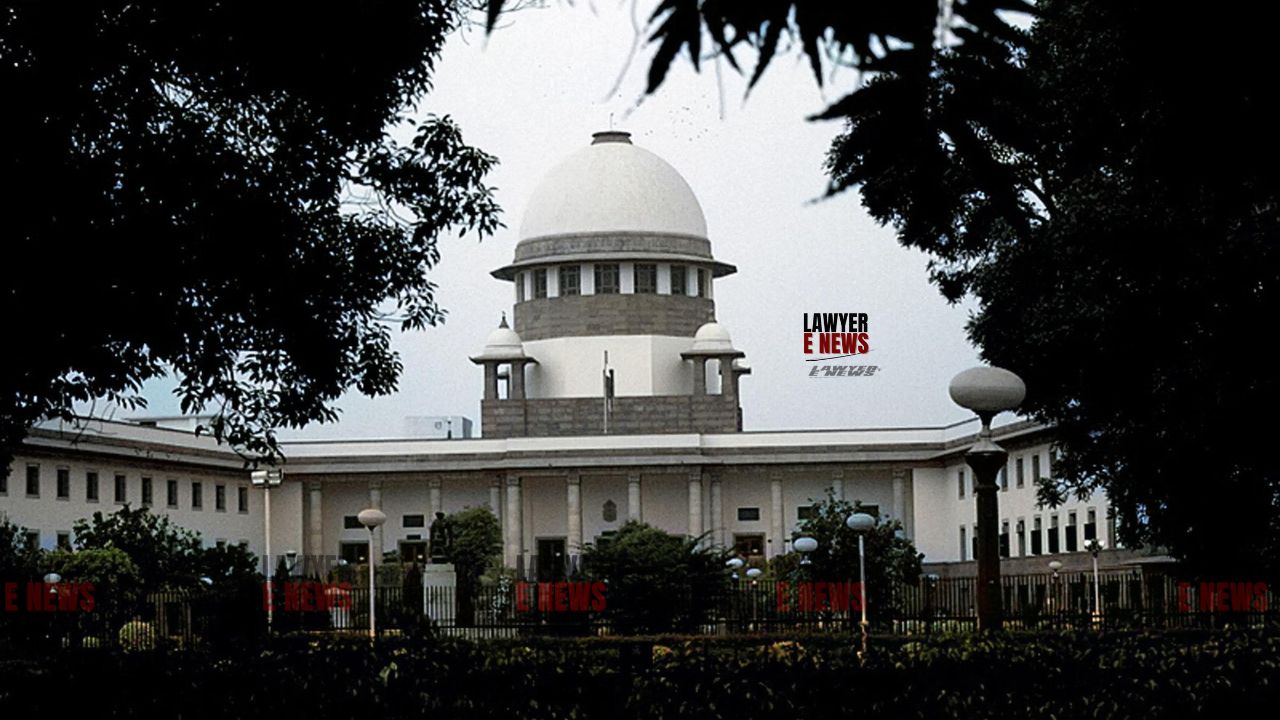-
by Admin
15 February 2026 5:01 PM



Supreme Court of India dissolved a marriage citing irretrievable breakdown, after the couple had been living separately for more than 20 years. The bench comprising Justice Vikram Nath and Justice Prasanna B. Varale exercised its powers under Article 142 of the Constitution, granting a decree of divorce and ordering the husband to pay ₹5 crores as permanent alimony to the wife and ₹1 crore to their son for education and financial security. The judgment marked an equitable resolution of a prolonged marital dispute.
The Court analyzed multiple facets of the case, including the long separation, the wife's dependence, the son's ongoing educational needs, and the husband's financial capacity. It also examined the husband's alleged misrepresentation of his assets during maintenance proceedings.
The marriage, solemnized in 1998, had broken down completely, with the couple separating in 2004. Since then, multiple rounds of litigation followed, including maintenance applications under Sections 24 and 26 of the Hindu Marriage Act, 1955 (HMA), and a withdrawn divorce petition filed by the husband.
In its decision, the Court observed that: Marriage Had Broken Down Irretrievably: The Court noted that the couple had been living separately for over two decades, with no possibility of reconciliation. It invoked its discretionary powers under Article 142 to dissolve the marriage, noting, “The relationship has been strained for too long, and no useful purpose would be served by continuing it in name alone.”
Maintenance Proceedings Survive Divorce Petition Withdrawal: The husband argued that the withdrawal of his divorce petition in 2016 rendered the family court incapable of continuing proceedings for interim maintenance under Sections 24 and 26 HMA. The Court rejected this argument, emphasizing that maintenance claims are independent of the main matrimonial proceedings. Such provisions, it held, are designed to ensure financial security for the dependent spouse and children regardless of procedural developments.
Concealment of Assets and Income by Husband: Evidence revealed that the husband, a high-earning banker, concealed significant financial details during proceedings. While claiming limited resources, he was found to have investments exceeding ₹5 crores and owned multiple properties worth several crores. The Court found these attempts to mislead the judicial process indicative of bad faith.
After considering the husband’s financial standing, the wife’s dependence, and the son’s educational needs, the Court issued the following directives:
Marriage Dissolution: The Court dissolved the marriage under Article 142, stating that the prolonged separation, coupled with serious allegations from both sides, left no scope for reconciliation.
One-Time Settlement: The husband was directed to pay ₹6 crores in total:
₹5 crores to the wife as permanent alimony.
₹1 crore for the son’s education and financial security.
Payment Deadline: The settlement amount must be paid within four months, ensuring a swift resolution of the dispute.
Closure of Maintenance Claims: The Court noted that interim maintenance of ₹72 lakhs had already been paid, and the one-time settlement would cover all pending claims.
The Court emphasized the importance of equitable resolutions in matrimonial disputes, particularly when one party is financially dependent. It observed that the wife, a homemaker, had sacrificed her career during the marriage, while the husband, a senior banker earning over ₹10-12 lakhs per month, had ample capacity to provide for her and their son.
The Court reiterated its position on maintenance in cases like Rajnesh v. Neha (2021) and Vinny Parmar v. Paramvir Parmar (2011), holding that the dependent spouse is entitled to a standard of living commensurate with that enjoyed during the marriage. It rejected the husband’s attempts to minimize his obligations by withholding financial information, asserting that transparency is crucial in determining fair maintenance.
The son, though now an adult, was deemed entitled to financial support until he becomes self-reliant. The Court observed, “In today’s competitive world, gainful employment may be feasible only after the completion of higher education.”
This judgment sets a precedent for balancing the financial interests of dependent spouses and children while ensuring fairness in resolving prolonged marital disputes. By addressing both the immediate and long-term financial needs of the wife and child, the Supreme Court has provided a just resolution to a marriage that had effectively ended long ago.
Date of Decision: December 10, 2024
